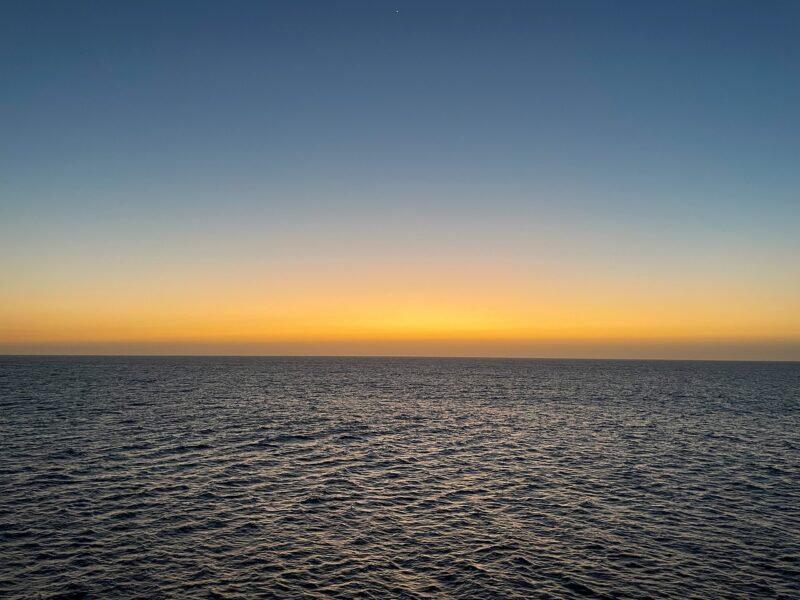The History of Ocean Exploration: How We’ve Mapped the Unknown Depths of the Sea
November 14, 2024

The ocean covers more than 70% of our planet’s surface, yet much of it remains unexplored and undiscovered. Ocean exploration has a rich history, full of bold initiatives, groundbreaking technologies, and incredible discoveries. In this article, we will embark on a journey through time, examining how humankind has ventured into the depths of the seas and oceans, pushing the boundaries of what is known about this vast and mysterious environment.
1. The Beginnings of Ocean Exploration
The history of ocean exploration can be traced back to ancient civilizations. Early seafarers, like the Polynesians, used canoes to navigate vast expanses of ocean, proficiently following the stars and ocean currents, which allowed them to discover and settle on islands across the Pacific. These audacious navigators played a significant role in the initial mapping of the seas, using simple yet effective techniques that would lay the groundwork for future exploration.
One of the earliest recorded explorers was the Greek philosopher Pytheas of Massalia. In the 4th century BC, he undertook a remarkable journey from the Mediterranean to the British Isles and beyond, even venturing to the Arctic. His writings provided early Europeans with an understanding of the tides and the phenomena of the northern seas, enabling further exploration and maritime trade.
2. The Age of Discovery: Expanding Our Horizons
The Age of Discovery, from the late 15th century to the early 17th century, marked a significant period in ocean exploration. This era saw the rise of European maritime nations leading global exploration initiatives. Giants like Christopher Columbus, Vasco da Gama, and Ferdinand Magellan expanded the known world, mapping new territories and establishing trade routes.
During this period, advances in shipbuilding and navigation played a critical role. Ships were designed for longer voyages, equipped with sails that improved speed and maneuverability, and sailors began using tools like compasses and astrolabes to navigate the open seas. The maps created during this age were rudimentary yet groundbreaking, providing invaluable information that influenced global trade and commerce.
3. The Birth of Scientific Oceanography
By the 18th and 19th centuries, the quest for knowledge about the oceans transformed from exploration for trade to scientific inquiry. Cutting-edge oceanographic expeditions emerged, notably the HMS Challenger in the 1870s. This voyage undertook the first systematic scientific investigation of the deep sea, collecting data on marine life, water temperature, and sea bed composition, fundamentally shaping our understanding of oceanography.
The results from the Challenger expedition resulted in the publication of the “Challenger Reports,” a series of scientific papers that detailed findings from deep-sea exploration, many of which remain relevant today. This pivotal expedition established the foundation for future oceanographic research and led to the creation of marine biology as a recognized scientific discipline.
4. The Technological Revolution in Ocean Exploration
With the 20th century came a technological revolution that dramatically changed the landscape of ocean exploration. One of the key developments was the invention of submersibles and remotely operated vehicles (ROVs), allowing researchers to dive deeper and explore areas previously considered unreachable.
One of the most famous submersibles, the bathyscaphe Trieste, reached the Challenger Deep in the Mariana Trench in 1960, diving nearly 36,000 feet. This remarkable feat opened up the mysterious depths of the ocean to human exploration and revolutionized our understanding of marine ecosystems and geological formations.
Another critical advancement has been sonar technology, which enables high-resolution mapping of the ocean floor. Sonar systems have improved our ability to visualize underwater topography and locate shipwrecks and underwater features, expanding the known geography of our oceans.
5. The Role of Satellites and Modern Exploration
In recent years, satellite technology has emerged as a powerful tool in ocean exploration. By using satellites equipped with remote sensing technology, scientists can monitor ocean temperatures, currents, and chlorophyll levels in real time, providing unprecedented insights into ocean health and climate change.
Satellites have allowed researchers to map 100% of the ocean’s surface efficiently. Massive underwater mapping projects like the Seabed 2030 initiative aim to map the entire ocean floor by 2030, providing critical data for marine conservation, resource management, and scientific research.
Notably, international collaborative efforts and technological advancements have made the study of ocean depths more accessible, encouraging greater scientific research and prompting global conversations about ocean sustainability and conservation efforts.
6. The Future of Ocean Exploration
Looking forward, the future of ocean exploration holds promise and challenges. As climate change continues to threaten marine ecosystems, exploring the ocean becomes increasingly critical for understanding and mitigating damage. Future explorations will likely focus on biodiversity assessments, identifying new species, and understanding how ecosystems respond to changing environmental conditions.
Innovative technologies such as artificial intelligence, machine learning, and marine drones are set to transform how we collect data and analyze ocean conditions. These systems can cover vast areas of the ocean more efficiently, ensuring that researchers gather data necessary for protecting marine life and ecosystems.
Additionally, citizen science initiatives are emerging, inviting everyday people to contribute to ocean exploration efforts. This collective approach engages diverse communities, enhances public awareness of ocean issues, and introduces future generations to the importance of ocean conservation.
Conclusion
The history of ocean exploration is a testament to humanity’s innate curiosity and desire to understand the unknown. From the ancient navigators to modern scientists equipped with advanced technology, every leap into the depths has contributed to our collective knowledge of the ocean. The journey is far from over, as we continue to uncover new mysteries lurking beneath the waves and work towards ensuring the health of our oceans for future generations. Exploring the depths promises to yield discoveries that will not only enlighten us but also inform our stewardship of this planet’s most vital resource, the ocean.








